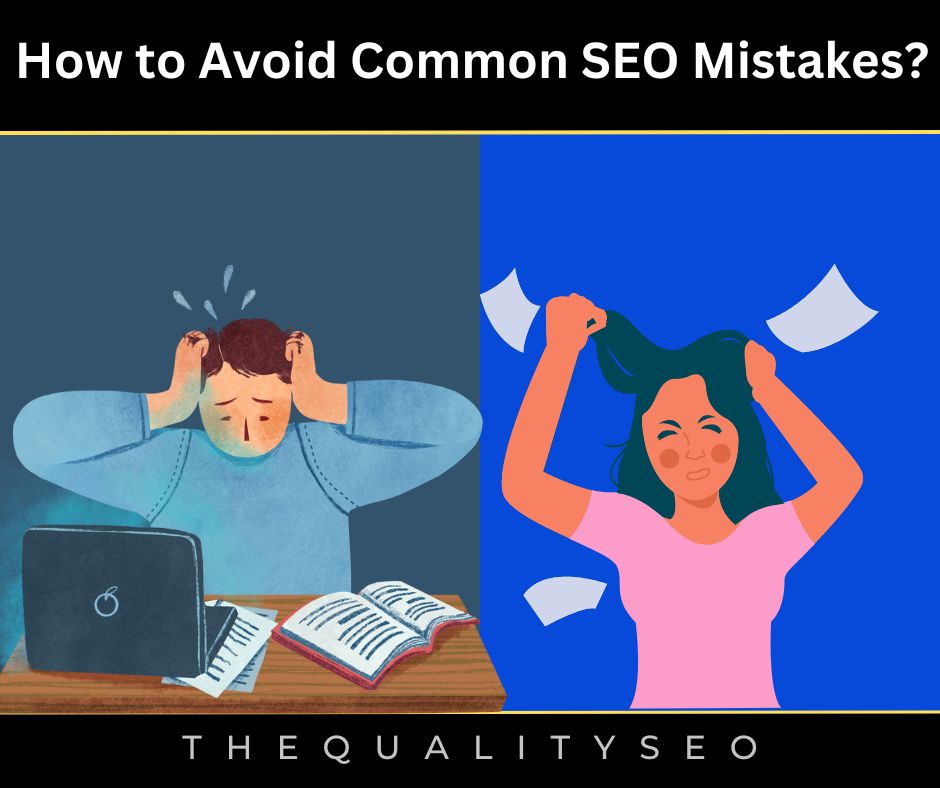In this article, we will discuss How to Avoid Common SEO Mistakes?
1. What is SEO Mistakes?
SEO is a great way to increase your website’s search visibility, but proper SEO is essential. SEO Mistakes affect your search ranking and traffic.
Furthermore, the site does not rank in search engine results. This article will tell you about Common SEO mistakes made by a blogger in the begging phase.
SEO is essential for any blog. It plays vital in increasing both your ranking and website traffic.
This post will help you find and correct SEO mistakes that are preventing your site from getting traffic.
Search engines are constantly getting more intelligent, and user perspective is also changing.
As continually optimization is continually evolving. In which many users make some SEO mistakes.
2. How to Avoid Common SEO Mistakes?
If you have a site and don’t know much about SEO, here are some things you can do yourself to check if your SEO strategy is right.
Also, if you have an SEO consultant, you can find out whether they are doing SEO properly or harming you.
Below are the Common SEO Mistakes that every user should avoid to rank their website higher. Here is the answer to How to Avoid Common SEO Mistakes? Listed below:
a. Choosing the Wrong Keywords
Selecting the right keywords for your content is very essential. It allows your content to get top rank in any search engine.
But many website owners or bloggers fail in this process. They do not choose the right keywords for their content. You write on a topic; first, find the right keywords.
Apart from this, you must pay attention to Keyword competition, bid value, and search volume. And for this, you can use Keyword Planner.
You can also use SEMrush, Answer the Public, Ahrefs, many new bloggers before many new bloggers do not do keyword research before writing articles.
If you are also doing this, this is your Biggest SEO mistake. You have to pay attention to this.
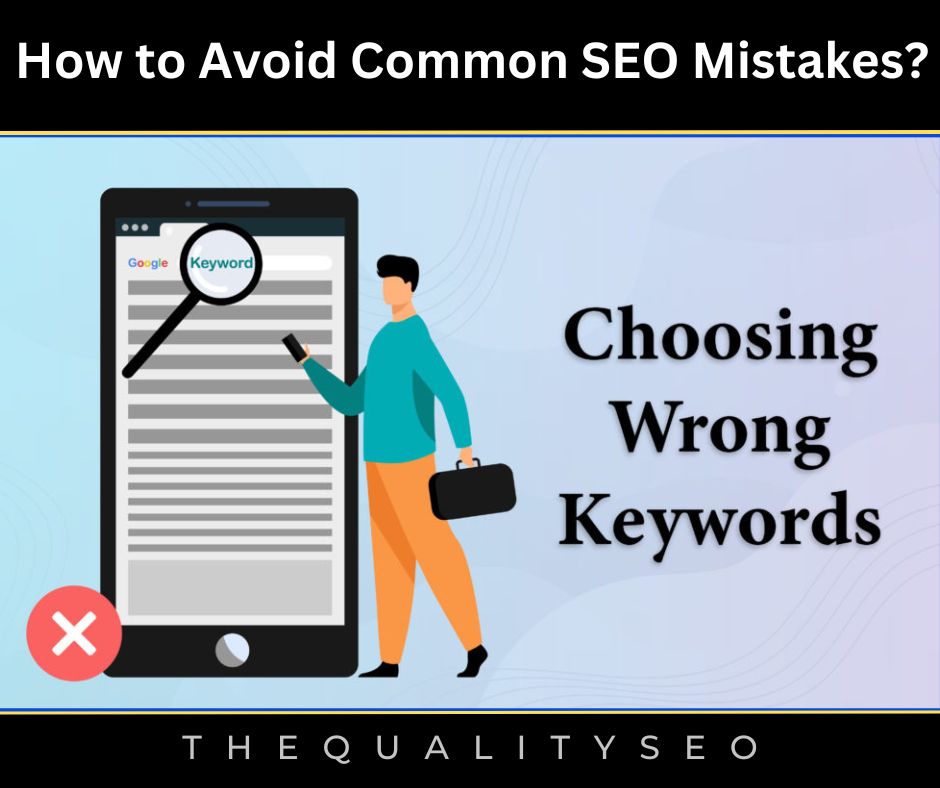
b. Not Using Long Tail Keyword
When you optimize your site with long-tail keywords, you will get good results, and the competition is also significantly less. There are many benefits of using long-tail keywords.
a. Easy to rank
b. Helps in getting Target traffic
c. Provide better conversion rates
d. Along with Long Tail Keywords, you can also rank on Short-tail keywords
e. Perfect for Competitive Niches
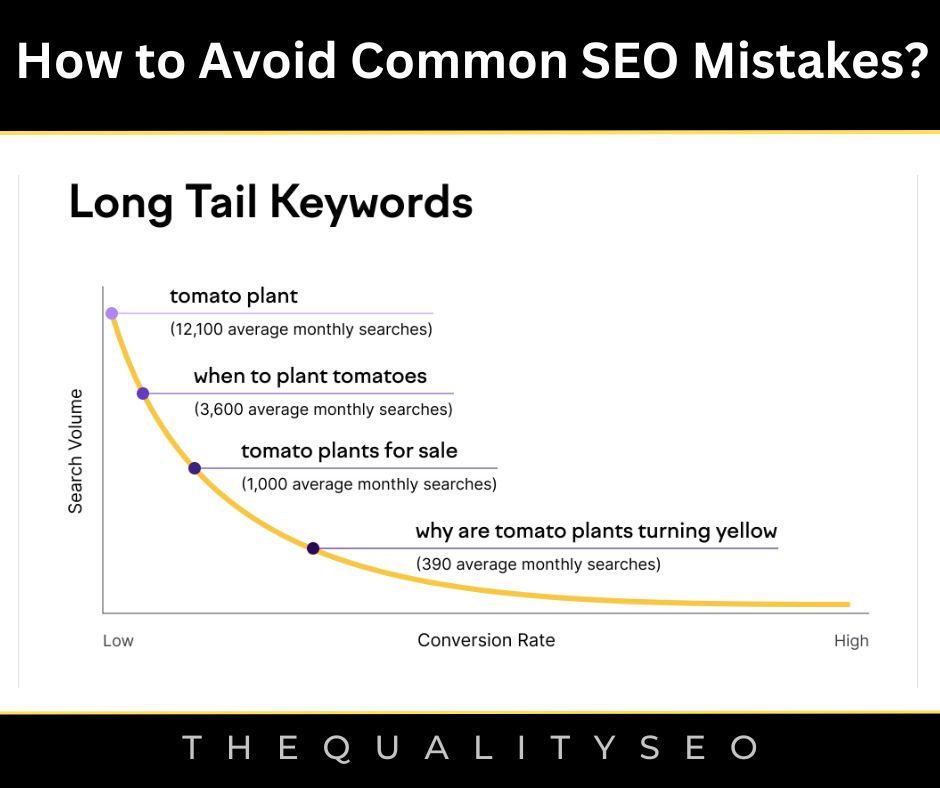
c. Using Keywords Without Variations
This is often done by many bloggers who use only one target keyword throughout their blog posts. This is totally wrong.
Use target keywords with variations. This SEO technique helps your content to get top rank in search results.
Search engines use target keywords, related terms, and variations to understand your page topic.
If you want to find keywords with good variations for your content, use this method.
a. Go to Google.
b. Enter your target keyword.
c. Scroll down the page; here, you will see some good keywords.
Also, you can use Google Auto-Suggest. Simply enter your focus keyword in a Google search. It will start showing related keywords.
After selecting keywords, you can use any of your favorite tools to check search volume and competition.
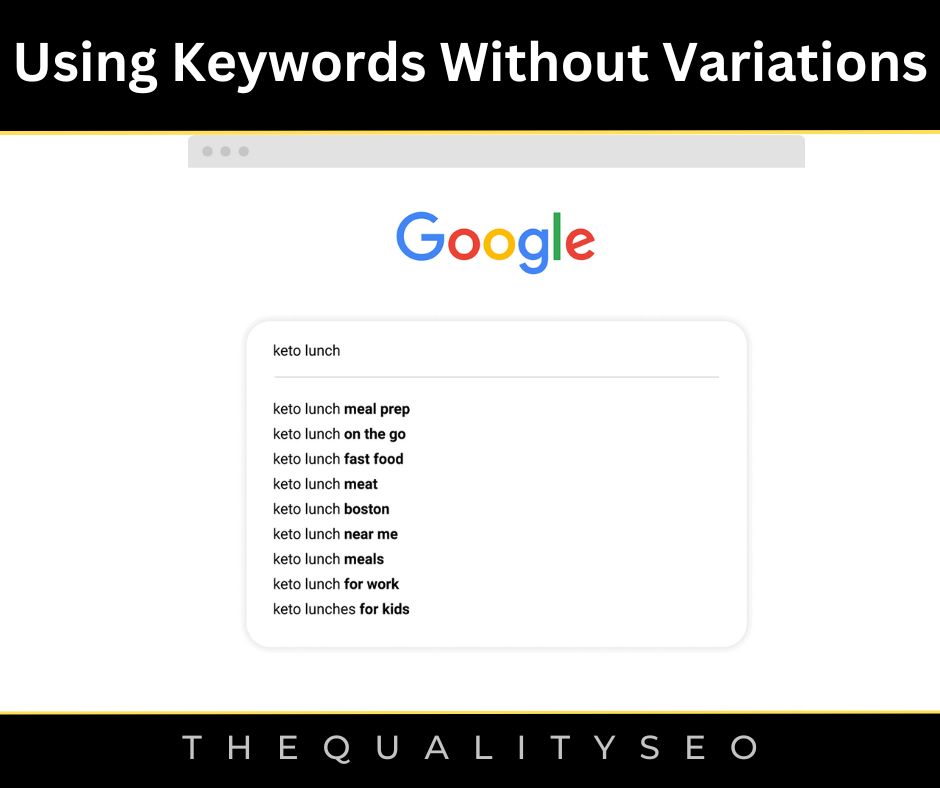
d. Keyword Stuffing
You are absolutely wrong if you add keywords everywhere in your content and think this will increase your search ranking.
In fact, the overuse of keywords will cause your content to be viewed by search engines as spammy content, meaning it actually hurts your website’s SEO.
In this way, Keyword stuffing does not boost the ranking of your content but will make your content unnatural and useless for the visitor.
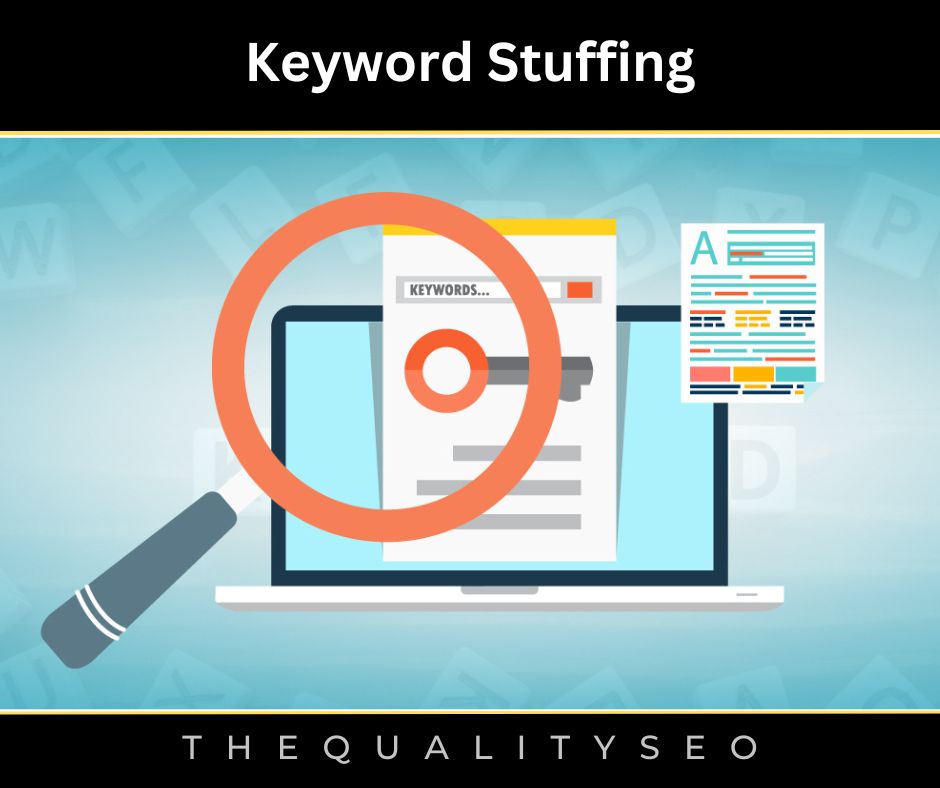
e. Publishing Non-Original Content
Non-Original content, i.e., Duplicate and Spin content (copied from other blogs or written using software), is called Spins content.
If you publish non-original content on your site, then search engines can penalize or blacklist your site.
Search engines consider copying and plagiarizing content as spamming and do not rank such content.
Duplicate and Thin content does not boost your website ranking. This further reduces your site ranking.
If you are using any such strategy, stop it immediately. This is the biggest mistake in blogging.
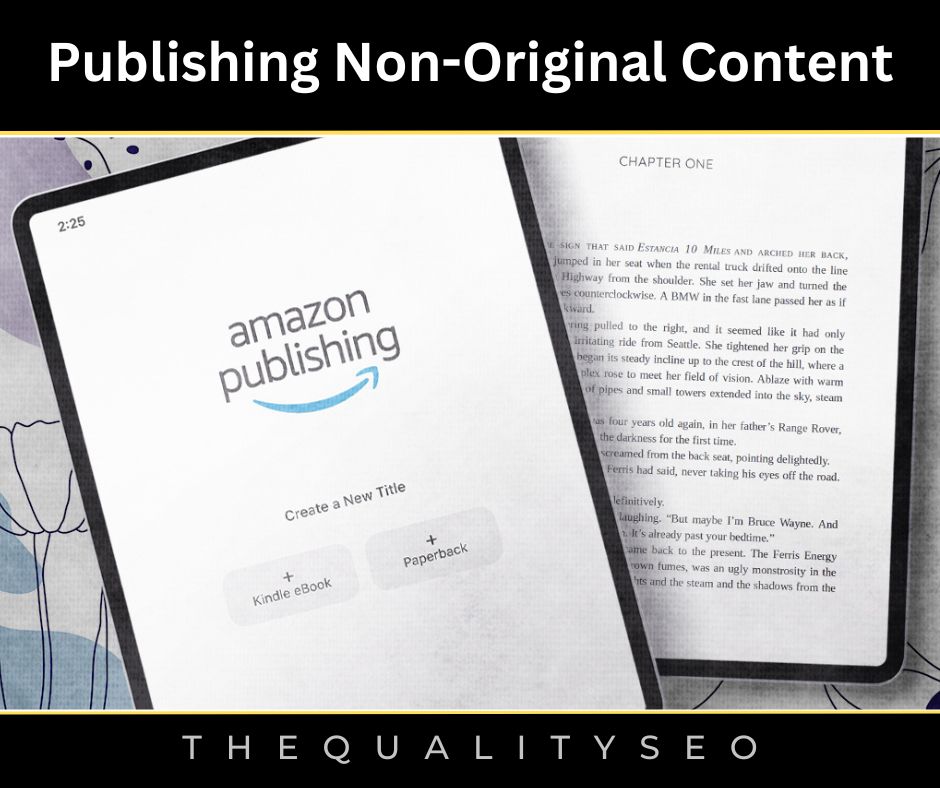
f. Don’t Write Short Articles
You are entirely wrong if you think writing short content can increase your search ranking.
Short content does not perform well in Google search results. Google views short content as thin and underdeveloped content.
Long-form content gets top rank as compared to short-form content in search results.
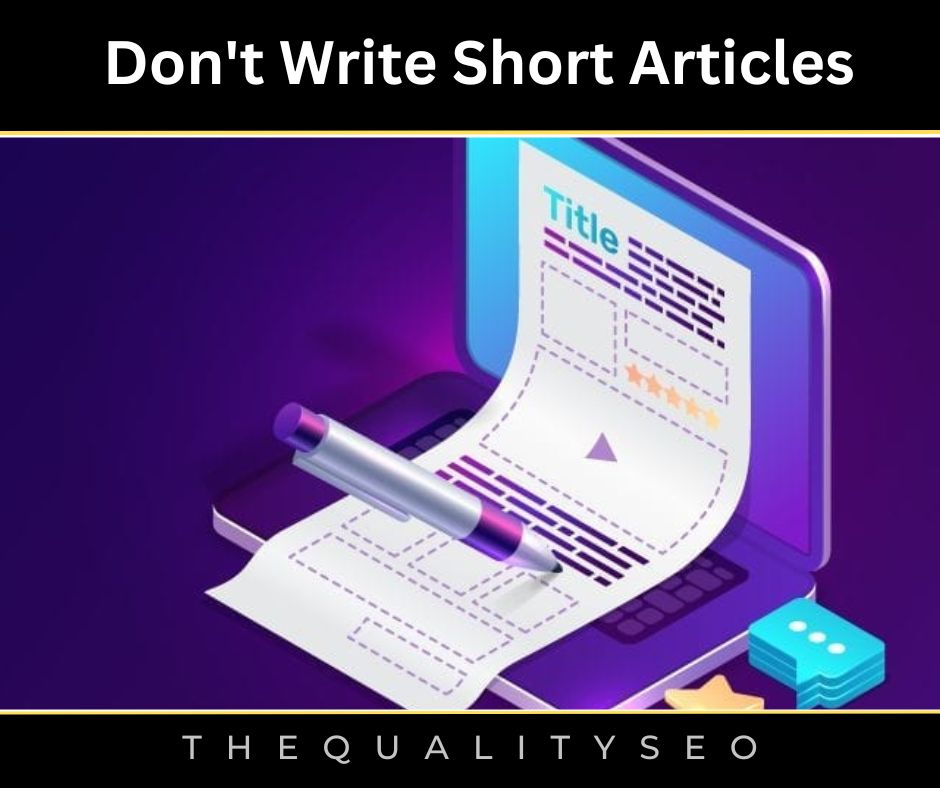
g. Over-optimize Content
Optimizing content is very important, but over-optimizing makes your content useless. Google never ranks such content.
Many bloggers over-optimize their content, which is against the Google search engine.
So, when you write SEO content, consider human readability and search engines.
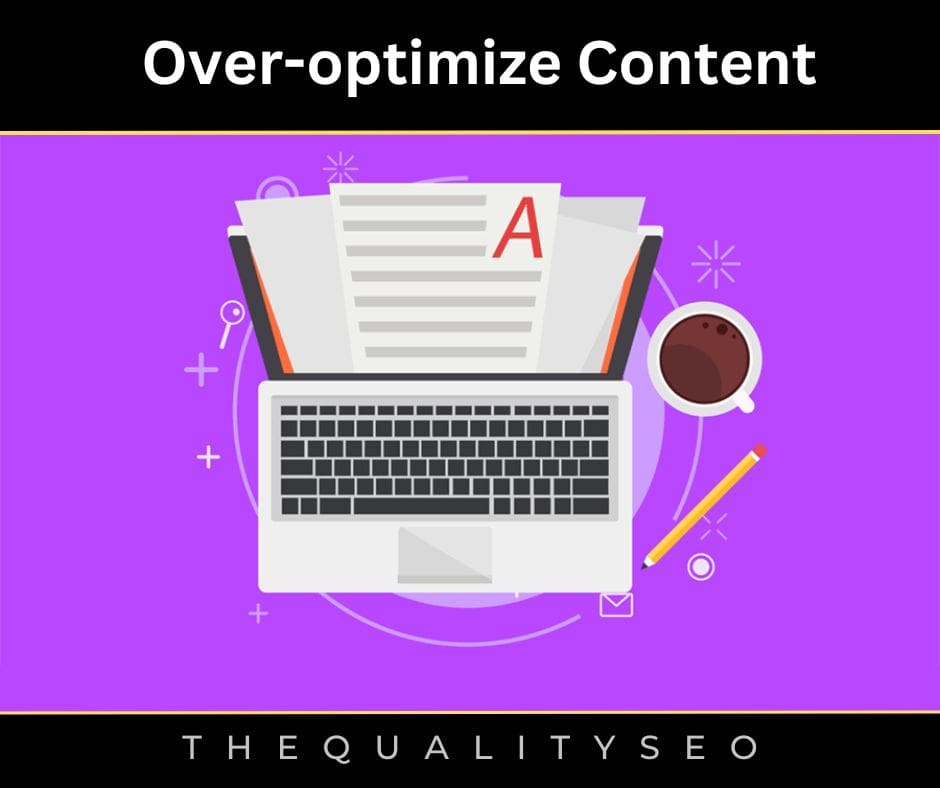
h. Title & Meta Description
Title and Meta descriptions are essential in increasing the Click Through Rate (CTR) of your content.
If you do not optimize it properly, you lose the opportunity to increase the CTR potential of your content.
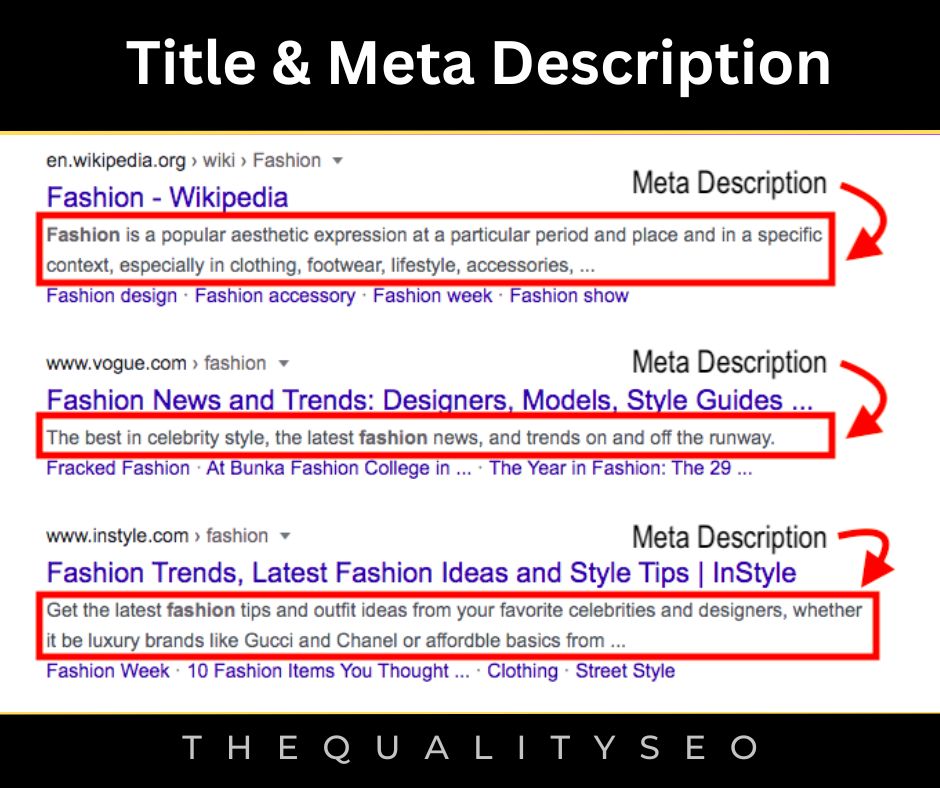
i. Not Optimizing Images
Many content writers forget to use alt tags for images. Search engines cannot read images but use ALT tags to understand images.
Use the correct name and alt tag for your image; it makes your article more SEO friendly.
If you use many images on your blog or website, resize and compress them before uploading them to your site or blog. This reduces your image size and improves your load time.
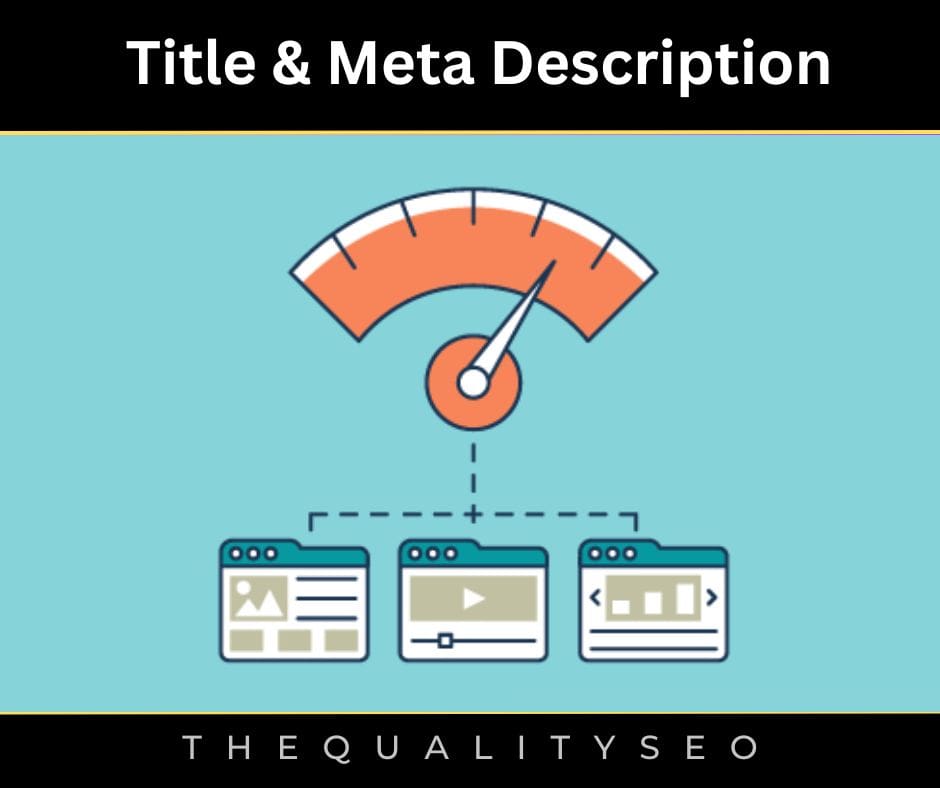
j. Not doing an SEO Audit of the Site
SEO Audit of the website is essential for many reasons.
SEO Audit gives the best results for your website, individual pages, and traffic. And helps you make good decisions.
So better than guessing the error on the site, it would be better to do SEO Audit.
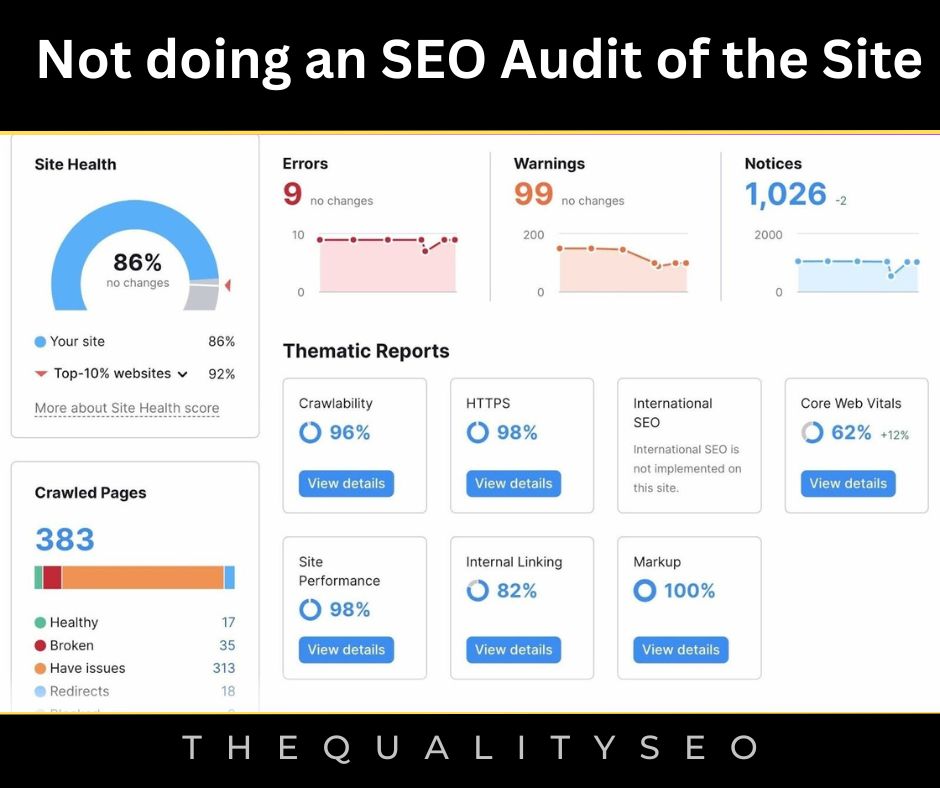
k. Not making the site Faster and Mobile-Friendly
Fast Loading and Mobile-Friendly are both Google ranking factors.
SEO optimization is not limited to content and keywords only. It also depends on your loading speed and is mobile-friendly.
More than half of searches are done on smartphones. This is why mobile-friendly is now an important SEO ranking factor.
You can use a mobile-friendly testing tool to check whether your site is mobile-friendly.
The same goes for website loading speed. Google and other search engines give more importance to fast-loading sites.
You can use the Speed Checker tool to check the loading speed of your site.
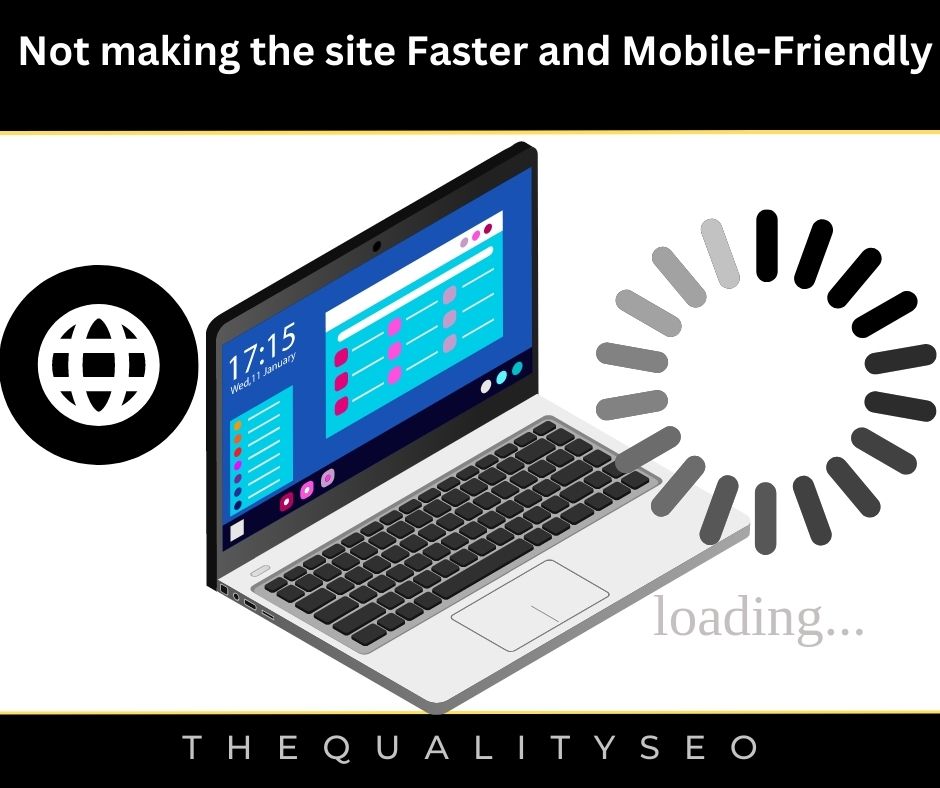
l. Buying Backlinks
The process of creating links is called backlinks. This is an ancient ranking factor used by Google and other search engines.
If you write quality and informative content on your site but do not make quality links, your writing skill is entirely useless.
Also, if you buy backlinks for your site, then it refers to lousy SEO techniques, and you may face a Google penalty because such backlinks contain low-quality and pornographic sites links.
Build backlinks for your site from relevant and well-ranking websites. If you create bad and low-quality backlinks, it can harm your SEO performance badly.
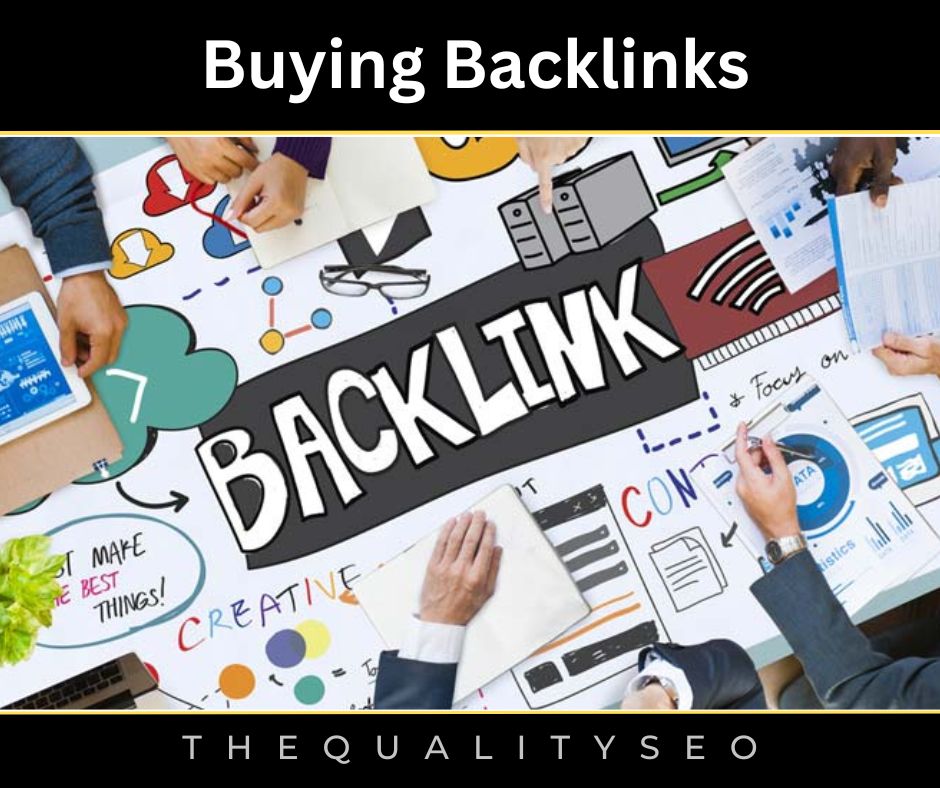
m. Not Using Social Media Interactions
According to SEO, after publishing an article, sharing it on different networks is very important. This step is related to off-page SEO.
Simply put, promoting your site is called off-page SEO.
The main goal of sharing your content is to attract the attention of users and search engines towards your content.
If you promote your blog post, then it helps to boost your blog traffic. Apart from this, you can also create a community and fan followers.
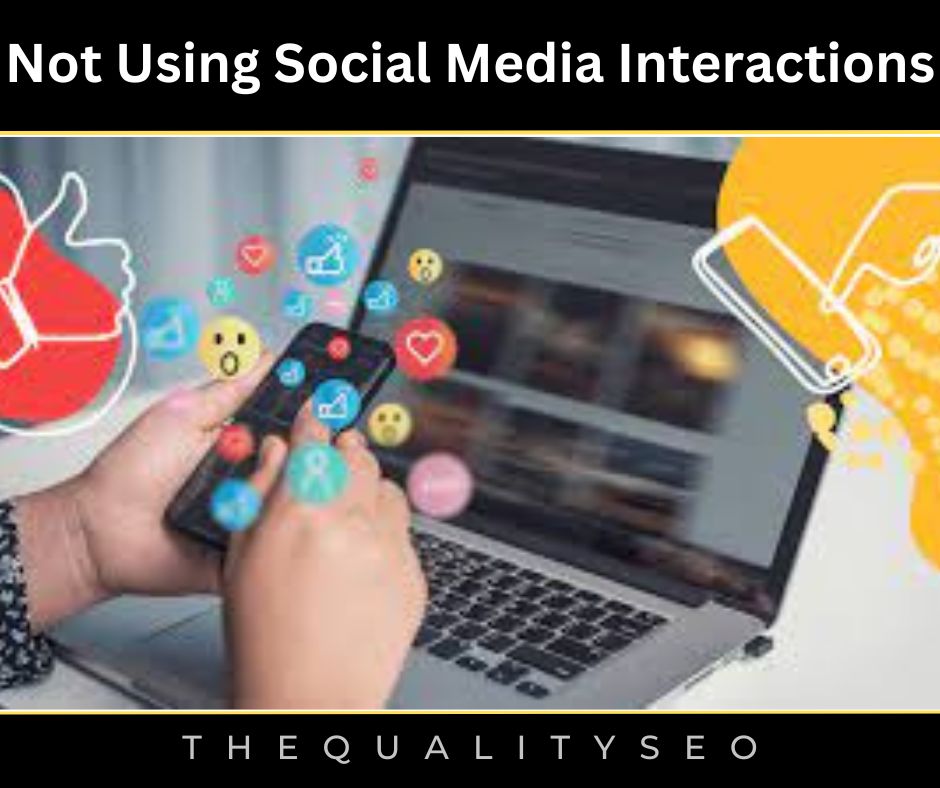
n. Using Bad Permalinks Structure
If you start a blog on WordPress, its default permalink structure is not SEO-friendly. And looks like this:
https://example.com/post-name
Don’t worry; WordPress lets you choose the permalink structure per your needs. I would recommend you use the ‘Post Name’ permalink structure.
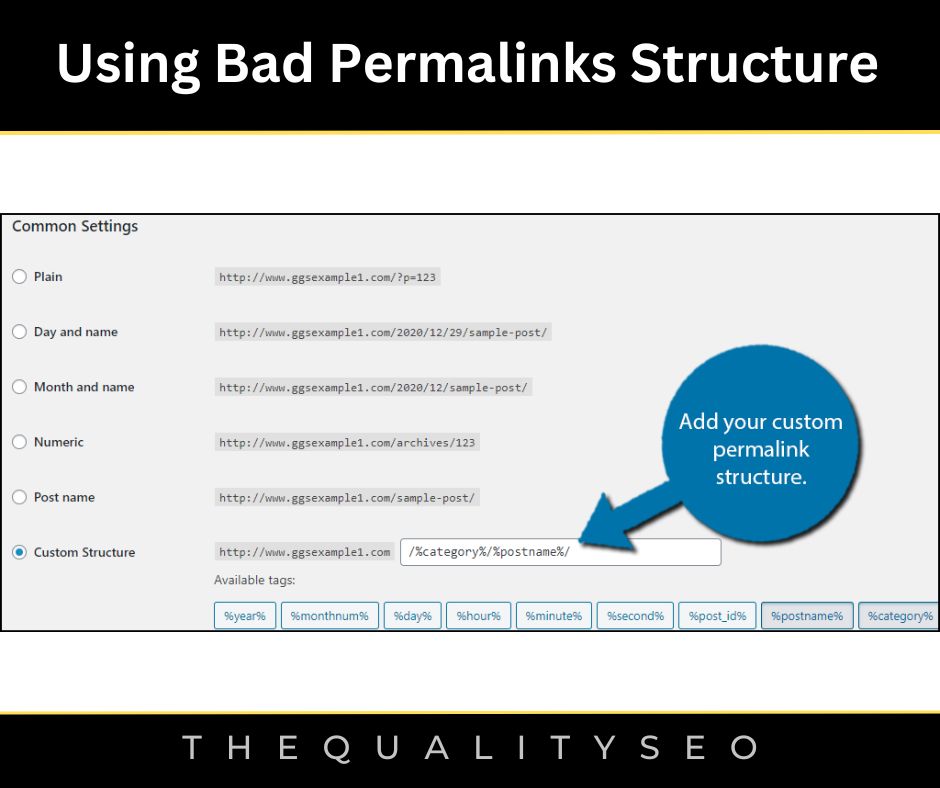
o. Using Non-SEO Friendly URLs
If you use long URLs or Non-SEO friendly URLs for your blog posts, then it affects your website SEO.
Make your URLs short and search engine friendly. Also, do not forget to include targeted keywords in your URL.
Always avoid such URLs,
https://thequalityseo.com/p=123
https://thequalityseo.com/5/10/17/category/what-is-seo
Always use URLs like this
https://thequalityseo.com/what-is-seo
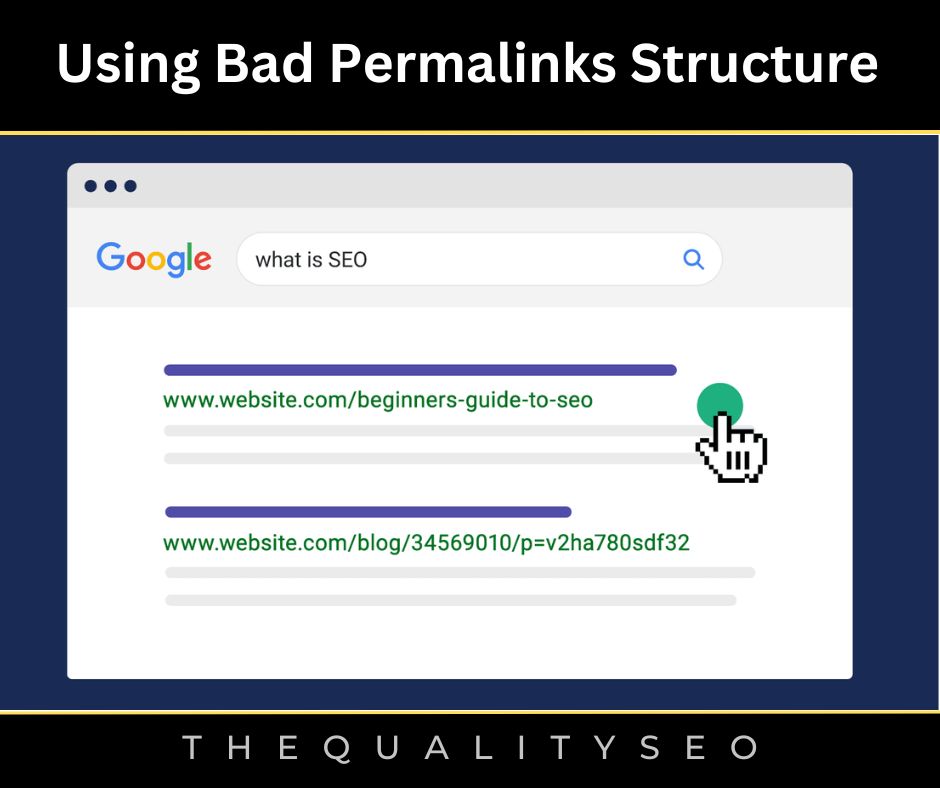
p. Not Doing Internal Linking
Many bloggers ignore internal linking and lose SEO benefits. This is an essential part of SEO. It improves website ranking, pageviews and lowers your bounce rate.
Benefits of Internal Linking:
a. Makes your posts more informative
b. Lowers bounce rate
c. Increases old post rank and pageviews
d. Provides Better crawling and indexing
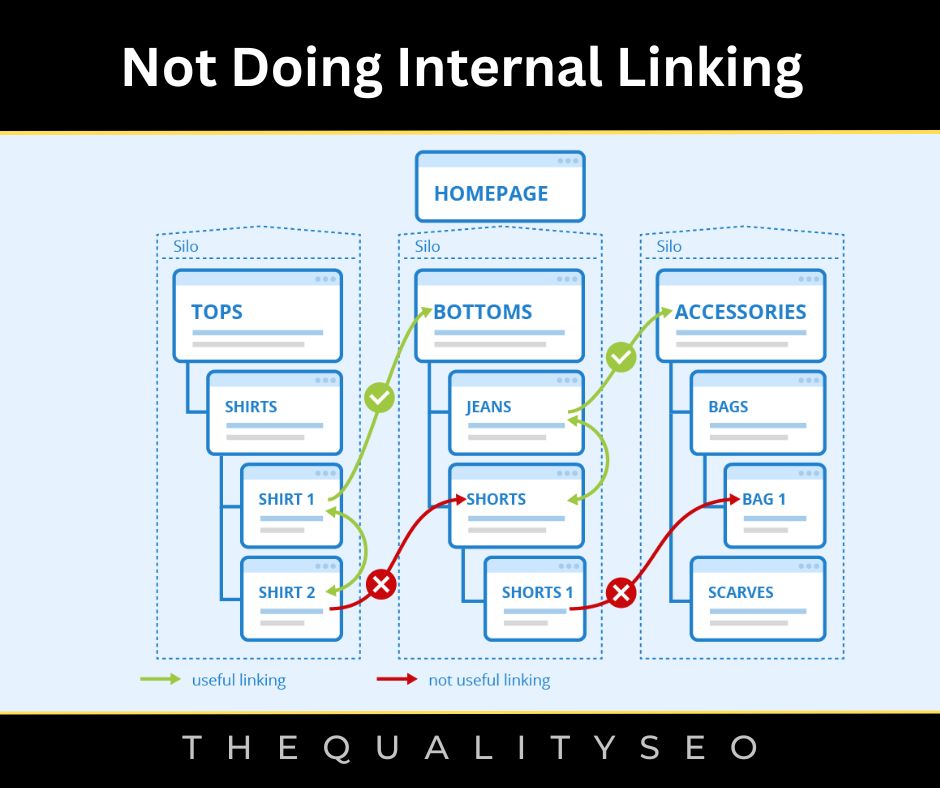
q. Choosing the Wrong Hosting
If you choose the wrong hosting, your blog will be mainly in downtime and load very slowly. This will significantly affect your site ranking and SEO.
Many hosting companies in the market promise to be the best, but after buying hosting from them, you will feel that they have cheated you.
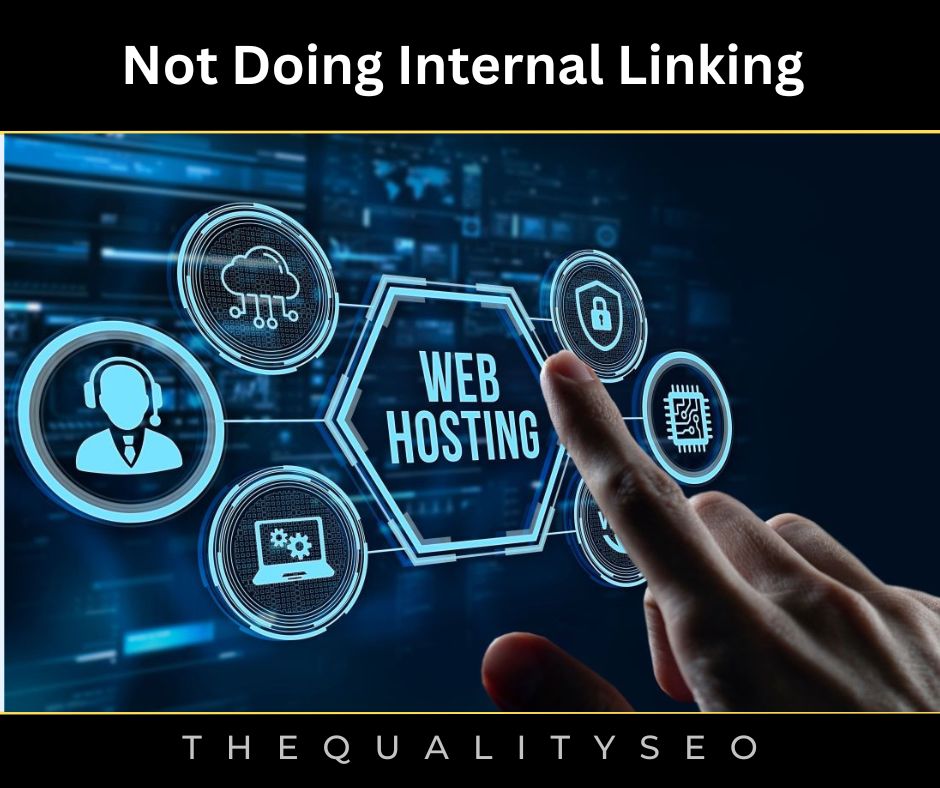
r. Not Updating Old Articles
You might have made spelling and some SEO mistakes while writing the content at the beginning of blogging. If you want to get rid of them, you should update them.
Also, Google loves fresh content, and fresh sites rank better. You must update your old blog posts with the latest information and keywords.
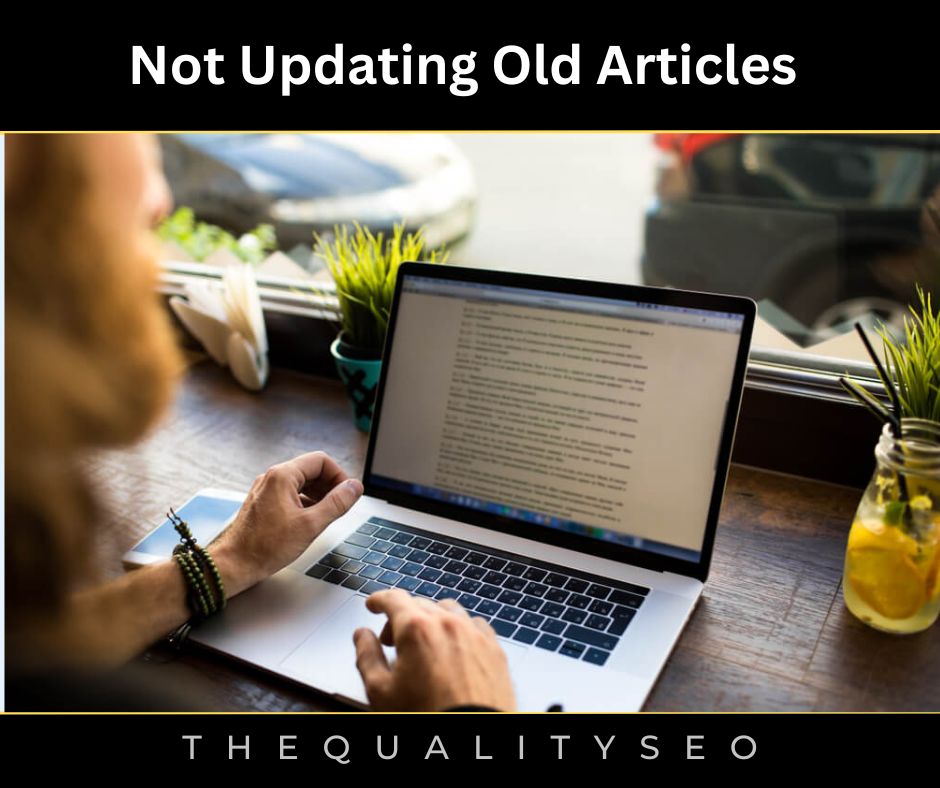
s. Ignoring Broken Links
Broken Links There are links on your site that do not exist, and when visitors click on them, they see a 404 page not found error.
This dramatically affects the visitor’s user experience and harms the site’s ranking.
If you are a WordPress user, there are several ways to fix broken links. You can use a plugin or a third-party website.
When you find broken links, update them with similar content links. If there is no similar content, you can delete the link.
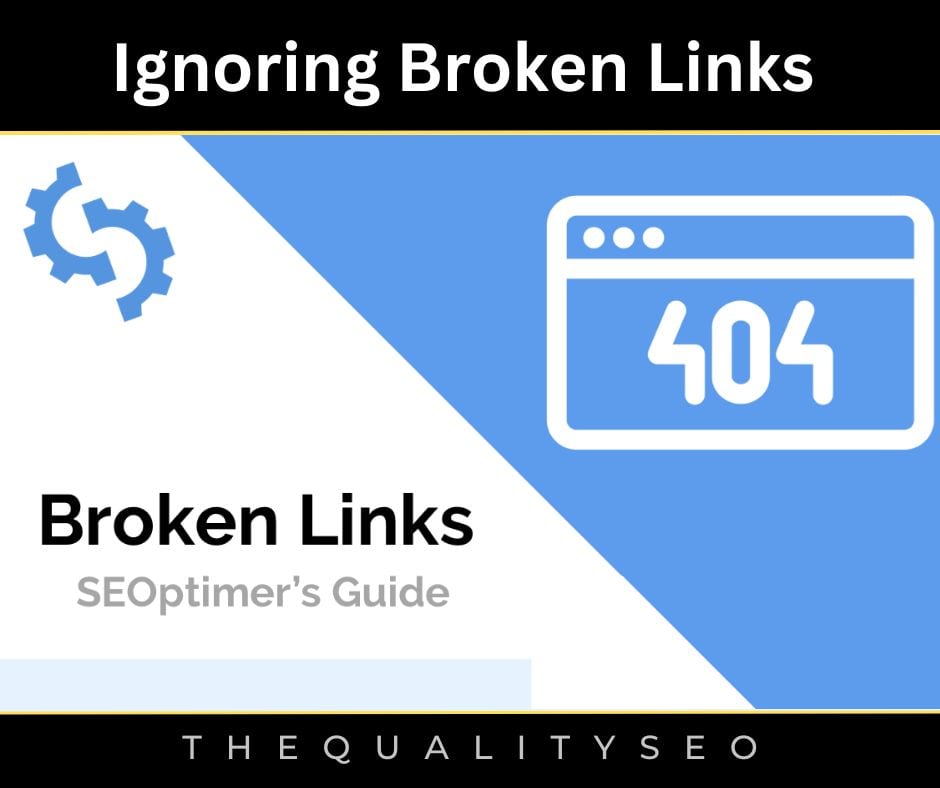
t. Indexing Category and Tag
If you index categories and tags, they can cause duplicate content in search engines. As a result, both your traffic and ranking may decrease.
Always set no-index for Category and Tag.
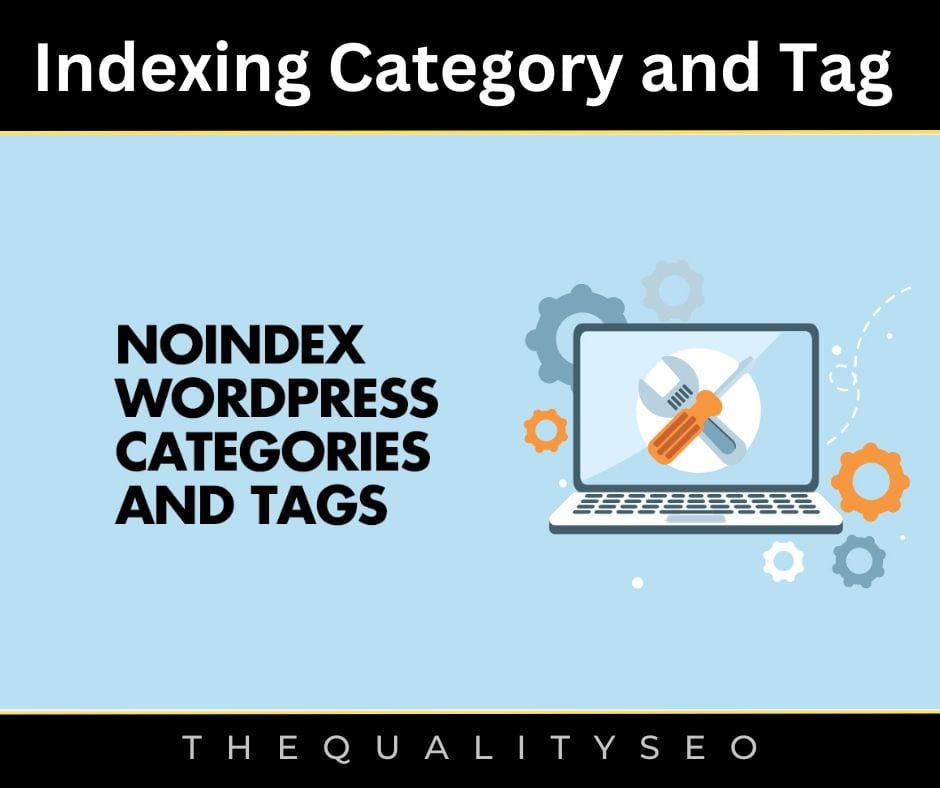
u. Indexing Author Archives
If you’re running a single-author blog, create a no-index for the Author Archives page. Because there will be the same content on both Author Archives and the homepage. And this can lead to duplicate content in your blog.
Not setting Nofollow for Affiliate Links and Untrusted Links.
Affiliate Links and Untrusted Links can harm website SEO. So, always set the rel=”nofollow” tag for Affiliate and Untrusted Links.
If you use a plugin to manage affiliate links on your blog, you can easily set the no-follow tag for your affiliate links.
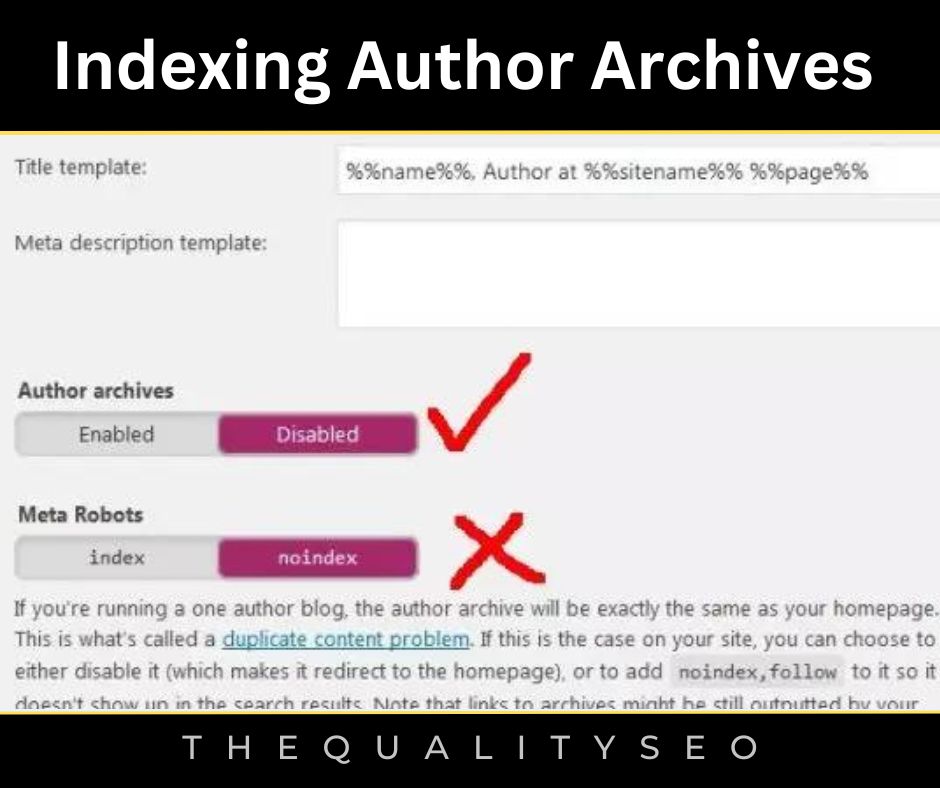
v. Not using a Well-Coded and Fast Theme
There are thousands of themes available for WordPress. All of them are not well coded and do not provide fast loading. If you install such a theme on your site, it significantly affects your website’s SEO.
You can buy premium themes for your site from Mythemshop, Themeforest, and StudioPress. But if you have a low budget, use a free theme like GeneratePress or Astra.
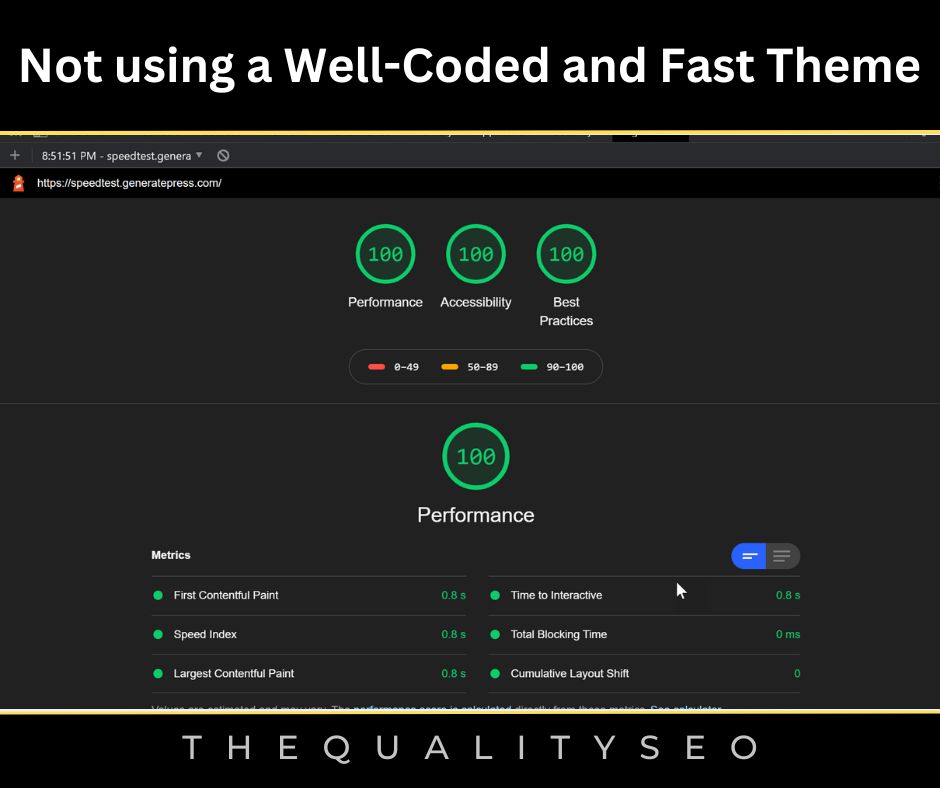
w. Not using HTTPS
Google now wants a secure web. That is why it is using HTTPS as a ranking factor. HTTPS site gets better rank in SERPs.
If you still use HTTP for your site, transfer to HTTPS immediately.
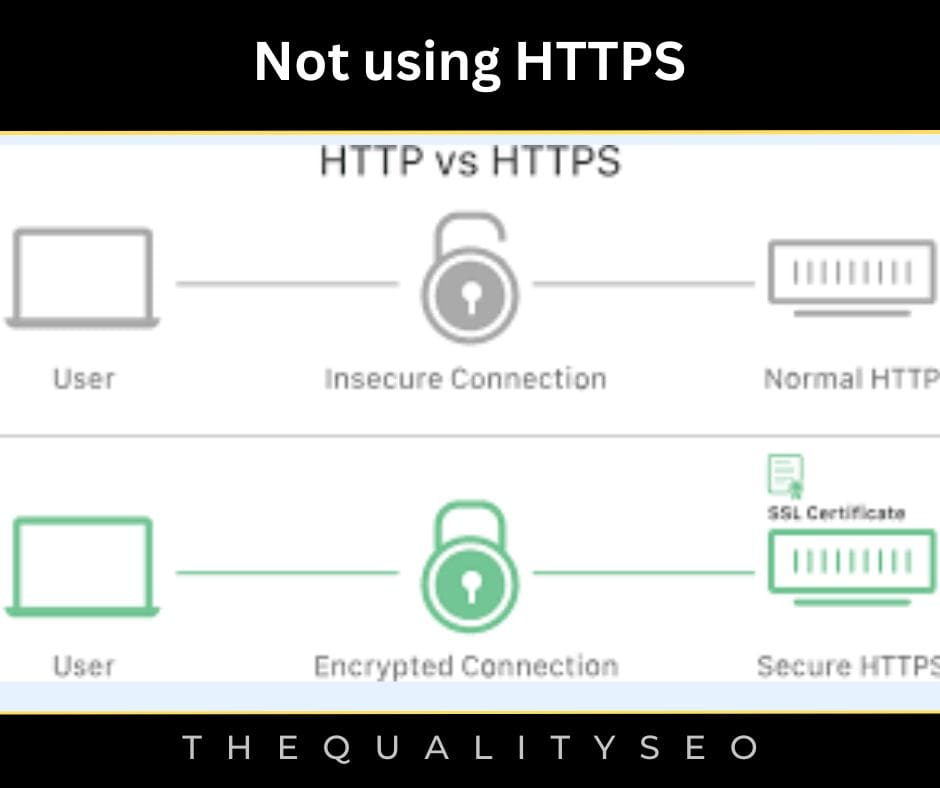
x. Not Using the Cache Plugin
As I already said, “Speed” is a ranking factor.
And a Cache Plugin improves website loading speed. It generates static html files from your blog and serves that file instead of heavier PHP scripts.
There are many caching plugins available for WordPress. But W3 Total Cache is the best plugin, with features like page caching, browser caching, object caching, database caching, and minification. Alternatively, you can use the WP Super Cache plugin.
Use only one caching plugin on your site. Multiple Caching plugins can create new bugs in your site.
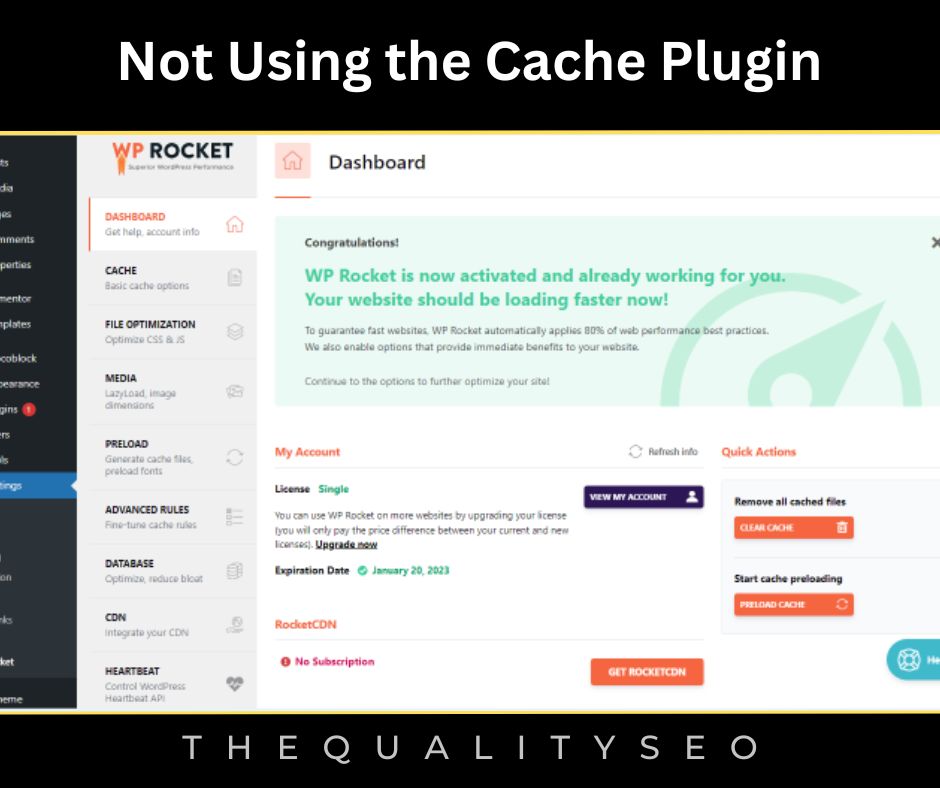
y. Not Using 301 Redirects
301 Redirects Permanent redirect from one URL to another URL. It sends site visitors and search engines to a different URL and maintains the SEO value.
When you delete any of your content and do not set redirection for it, then it is a big SEO mistake. This harms your site authority and traffic.
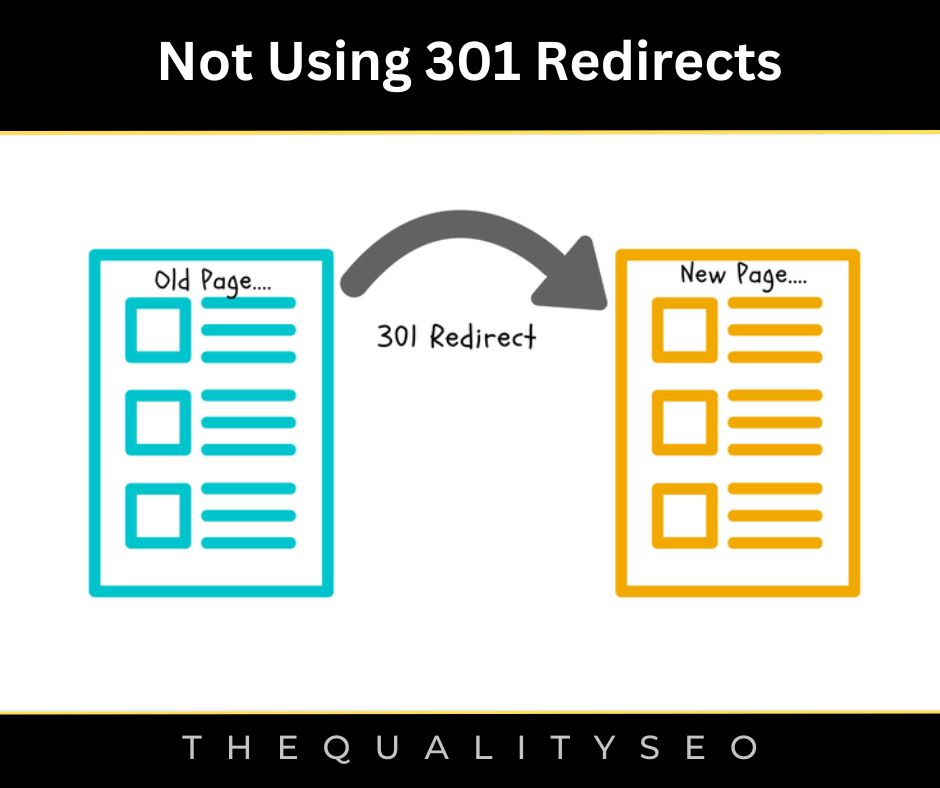
z. Not Using Webmaster Tools
Submitting your website to Google Search Console and Bing Webmaster Tools lets you learn valuable information like Crawl errors, Ranking Keywords, impressions, and more.
Also, both will inform you if any error occurs on your site.
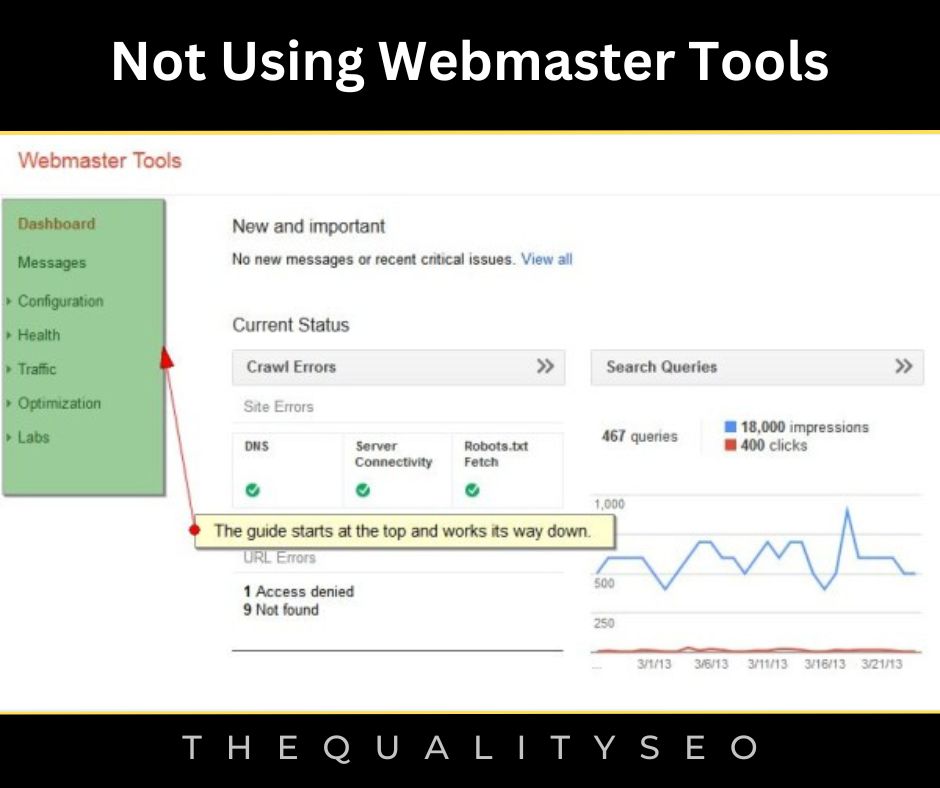
1. Not Submitting Sitemap
Sitemap contains the URLs of your website. It helps in crawling and indexing your website content better.
But to submit a sitemap, you must first verify your site in Webmaster Tools.
If you’re already using Yoast SEO or Jetpack on your site, they allow you to easily create an XML Sitemap.
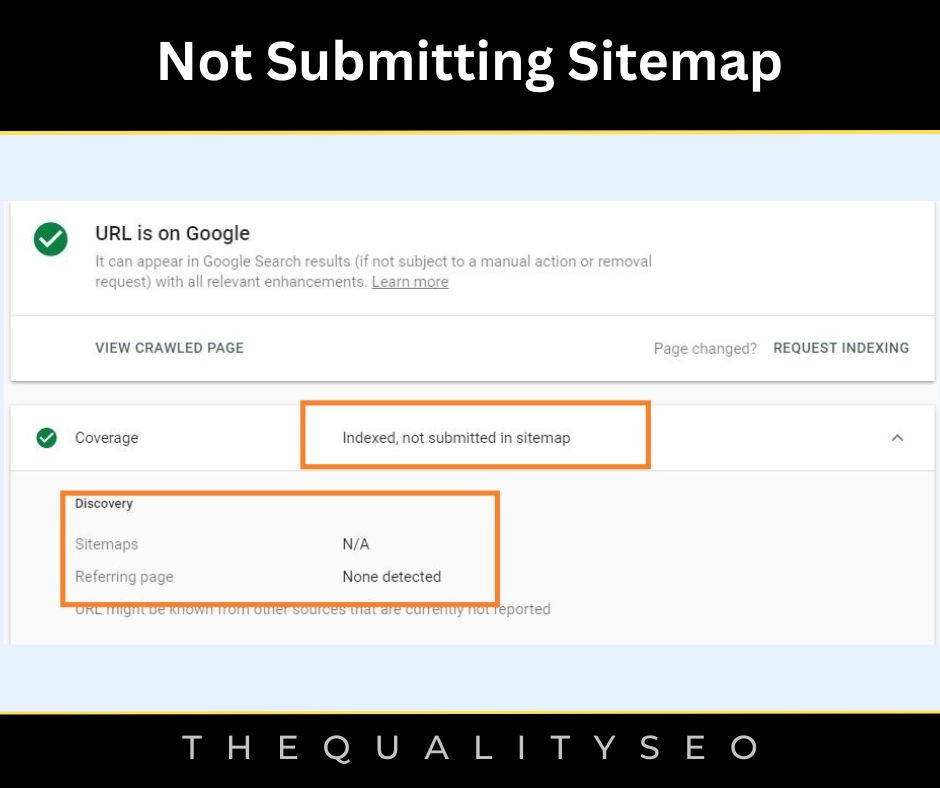
2. Not Writing Engaging Content
This is one of the top SEO mistakes that can sink any successful website.
Always try to write engaging content (informative and creative) that grabs visitors’ attention and compels them to share it with their friends.
This type of content gets more traffic.
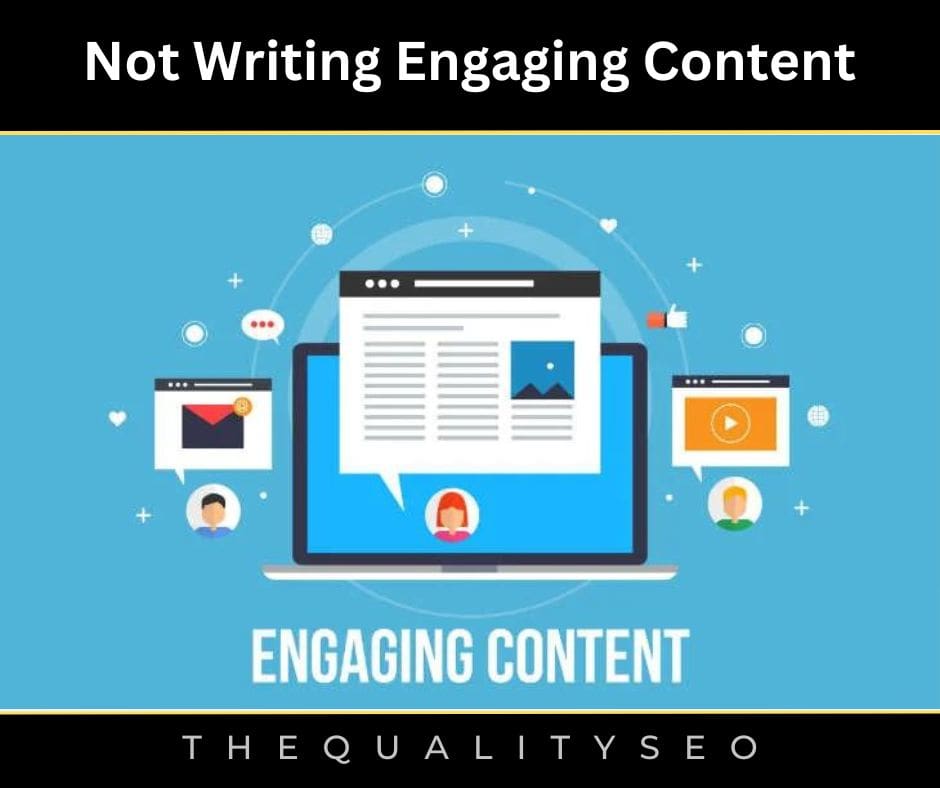
This was for the How to Avoid Common SEO Mistakes?.
Read Also: Optimize Your Blog Posts for Search Engine

